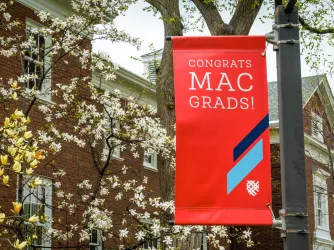Table of Contents
‘Cornell Daily Sun’ comes out swinging against security fees

The Cornell Daily Sun’s editorial board published a powerful editorial this week asking administrators to abandon Cornell University’s event security fee policy.
Last summer, FIRE intern Ben Lee sounded the alarm about the policy, which was then in the planning stages. He warned that “[i]f Cornell’s actual policy looks like its plans, Cornell risks taxing speech and imposing a heckler’s veto.” Unfortunately, Ben, now a junior at Cornell, proved prescient.
The policy’s central problem is that it requires students sponsoring a campus event to pay different fees for security depending on “myriad factors,” including whether the event features a “dignitary” or might be classified as an “elevated risk or high risk” event. That might sound reasonable at quick glance, but Cornell’s factors rely in significant part on subjective determinations made by administrators. For example, here are the questions Cornell asks students to consider when determining whether an event should be registered with the administration for presenting an “elevated risk or high risk”:
Has a similar event caused any form of disruption at Cornell in the past?
Has a similar event caused any form of disruption on another campus?
Has a similar event been characterized as elevated or high risk, or problematic by any media?
Are there historic reasons why there may be opposition to the event?
Has there been litigation, including a Supreme Court case, connected to the topics of the event?
Does your gut tell you this event might be elevated or high risk?
As a basic rule of thumb, if evaluative criteria relies in part on what “your gut” tells you, you’ve probably entered the realm of subjective decision-making. That’s a problem — because whether consciously or subconsciously, employing subjective criteria means an administrator will incorporate his or her personal opinions when affixing price tags to campus security for student-sponsored events. And if the administrator believes a student event will present an “elevated risk” or “high risk” because he or she disagrees with its content or viewpoint, the price for holding the event goes up.
That’s not the only problem, either. As the Daily Sun points out, Cornell’s security fee policy also provides an event’s opponents with a powerful incentive to disrupt (or threaten to disrupt) that event. The editorial board writes:
Yet by maintaining the event security fee, the University hands any and all agitators a potent tool to curb speech on precisely those grounds — or any grounds at all.
Committed protesters need only threaten on social media to stir up trouble. That, in turn, raises [the Events Management Planning Team’s] assessment of security risk for a given event. The cost of security is then passed along to the event’s organizers via the security fee. In effect, the security fee acts as what Michael Johns, Jr. ’20 aptly called a “heckler’s tax.” That tax was certainly high for Johns’ Cornell Republicans when they paid $5,000 to bring Rick Santorum to campus.
Even for less controversial events, like a speaking gig with DNC Vice Chair Michael Blake the Cornell Democrats put on last year, the security fee can smother speech. In a bout of EMPT incompetence, the Dems tell us they got hit with a surprise $660 security fee — which they lacked the funds to cover. The Dems very well could’ve been forced to pull the event.
Luckily, they were able to negotiate the price down to $200, which was covered by revenue from apparel sales. But that shouldn’t be necessary. If an event has been approved by EMPT, its security should be covered, too. The University’s enduring commitment to free expression means taking on such security costs — so that even the riskiest views may be aired, and disputed, safely. As we’ve previously written, “The fear of protest or the specter of overwhelming fees should not inhibit open discussion.”
FIRE strongly agrees. Security fees imposed on the basis of a speaker’s viewpoint are unconstitutional at public colleges and impermissible at private colleges that promise students freedom of expression. We’ve fought against security fees on behalf of students and student groups nationwide who have sought to bring a wide range of views to campus — everyone from Ward Churchill and Bill Ayers at the University of Colorado at Boulder to David Horowitz at the University of Arizona. We even coordinated a successful lawsuit on behalf of the Kalamazoo Peace Center when Western Michigan University imposed an unconstitutional security fee on a planned visit from rapper, activist, and “Sorry to Bother You” filmmaker Boots Riley.
After you’ve read the Daily Sun’s excellent editorial, read this thorough memorandum penned by law professors at the University of Washington School of Law for an extensive legal and historical analysis of viewpoint-based security fees that tracks their abuse all the way back to the Civil Rights Movement. And for a model of what Cornell should do instead, the Daily Sun and other proponents of expressive rights need only look downstate to another Ivy League institution, Columbia University, which announced last year that it will cover all security costs incurred by student events.
There’s nothing we at FIRE like to see more than students standing up for their rights. Accordingly, we commend the Daily Sun for leading the charge for free speech at Cornell. We hope administrators listen.
Recent Articles
FIRE’s award-winning Newsdesk covers the free speech news you need to stay informed.

Iranian agents accused of attempted assassination on U.S. soil — again

Alumni take action at Macalester College

FIRE statement on congressional leaders smuggling unconstitutional Antisemitism Awareness Act into a must-pass defense bill
